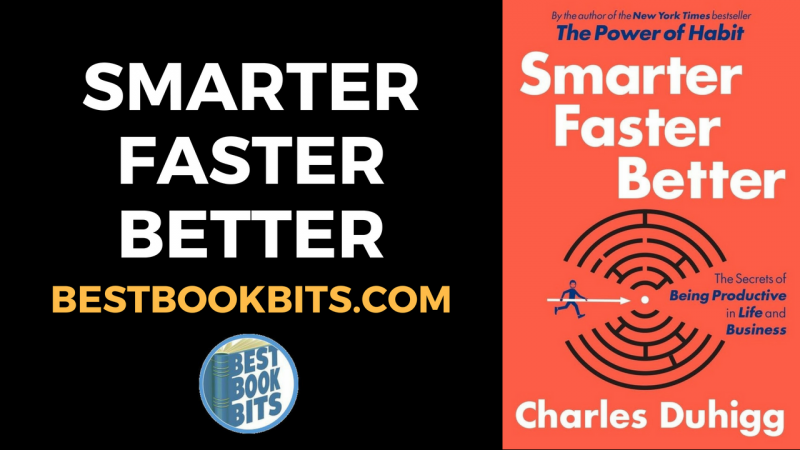


Smarter Faster Better is not bad, nor is it unpleasant to read. This is where the real trouble for this book lies: there are better books on productivity, and there are better books on management and decision making.

In addition, a lot of the main themes presented (teams, creativity, decision making, people management, data) relate more to general management issues than to what I would consider productivity. In fact, I would say the content is rather “traditional.” There is lots of interesting research on how productivity works and what it means for knowledge workers in the 21st century, but none of this gets explored or emphasized. The ideas presented are quite elementary for anyone who’s ever read up a bit on productivity or time-management (SMART goals, really?). Regardless of style, I found the content disappointing. But personally I prefer some risk taking and change, not following exactly the same recipe. Nothing necessarily wrong with that, and some would say “never change a winning team” (The Power of Habit is a New York Times best-seller).

Throw some research into the mix, then turn it all into a smooth narrative. For each chapter, take one or more compelling personal stories to make a certain point. To begin with, the style and structure is exactly the same. But maybe any expert on habits would feel similar reading that book as I did reading Smarter Faster Better… It was a compelling and relatively easy read (certainly for a non-fiction title), and I learned a ton I didn’t yet know about habits. I’m no expert at habit formation, and didn’t give them too much thought until reading Duhigg’s previous book.


 0 kommentar(er)
0 kommentar(er)
